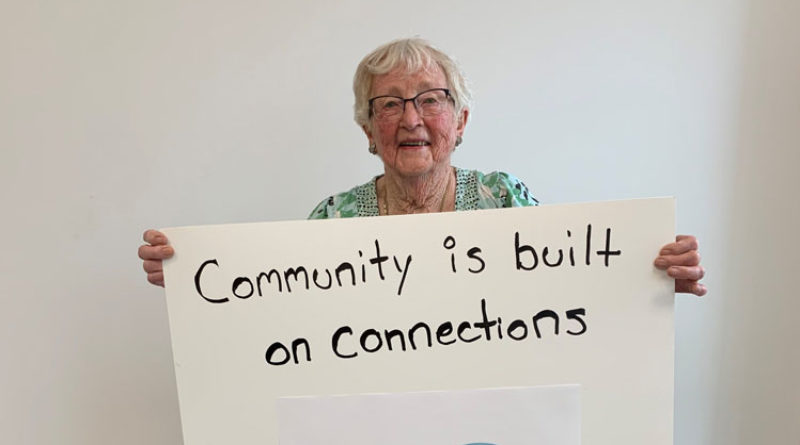Keep in Touch program curbs loneliness, isolation
By John Watson Local Journalism Initiative Reporter

Photo Coutresy of Melissa Masse
Taking its cue from Volunteer Lethbridge, both Strathmore Family and Community Support Services (FCSS) and Wheatland FCSS are hoping to help ease feelings of loneliness and isolation in the community.
The organizations have launched a Keep in Touch program to help connect those who may be feeling isolated with volunteers who will chat and connect with them.
Though the program was introduced and highlighted during last week’s senior’s week, Strathmore FCSS Community Support Coordinator Melissa Masse said it’s open to anyone who feels like they need someone to talk to.
“This program isn’t only open to seniors. It’s acknowledging senior’s week and the impact that COVID-19 has had on seniors, but the program is open to everyone in our community,” she noted. “A lot of vulnerable people just don’t have connections and they need that support, whether they’re a teenager, or (middle aged), or someone suffering a disability. “
Seniors in particular may have been significantly impacted by the COVID-19 pandemic, as particularly those who reside in community care and supportive living facilities would suddenly have lost access to much of their social experiences.
Wheatland FCSS CAO Lynn Walker said the hope is that having someone to talk to regularly will help curb some of the negative impacts from the pandemic on participants’ mental health and be a sort of stop gap that will continue beyond the COVID-19 crisis.
“It’s always nice to have a phone buddy that you can phone and chat with. From the volunteer’s perspective, one phone call a week is not too much to ask,” she said. “I think it has the makings of a program that is good to go right from the start.”
There is training for the volunteers in the things they should be discussing with the participants. There will also be scheduled wellness checks with participants to gauge their response to the program.
Masse said the impacts of losing social connections and isolation look different for every person, and participants will be matched with volunteers who will be best suited to their individual needs.
“We see lots of different situations in our communities, especially in the rural communities where there isn’t the same access to supports and services (as in an urban centre),” she said. “It was really important for us to establish a program for Strathmore and area that was based on volunteers because they are so integral to our community, and people feel more comfortable reaching out to a peer than a professional support service.”
Volunteer and participation forms, as well as more information about the program, is available online (wfcss.org/keep-in-touch-kit.html).
